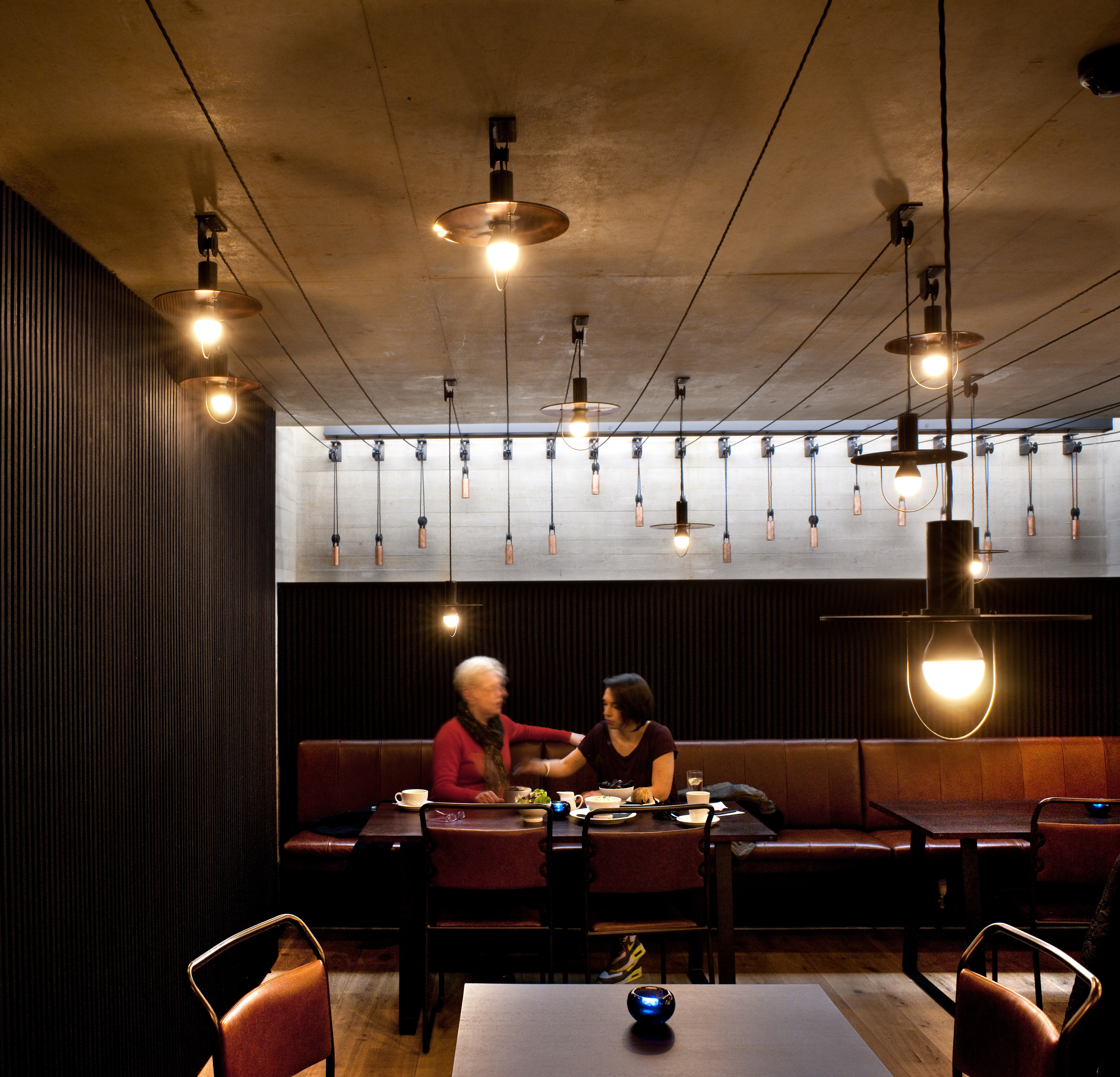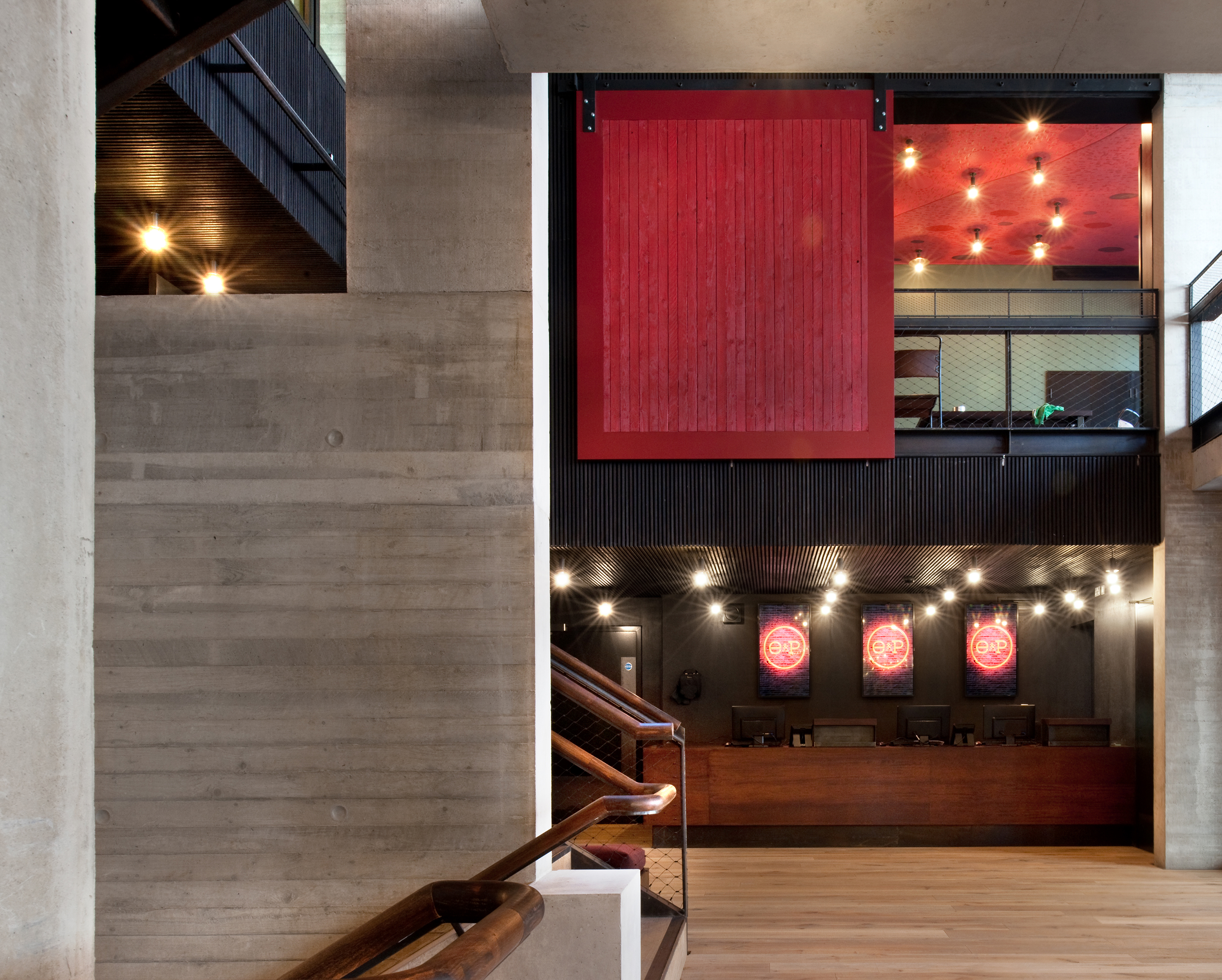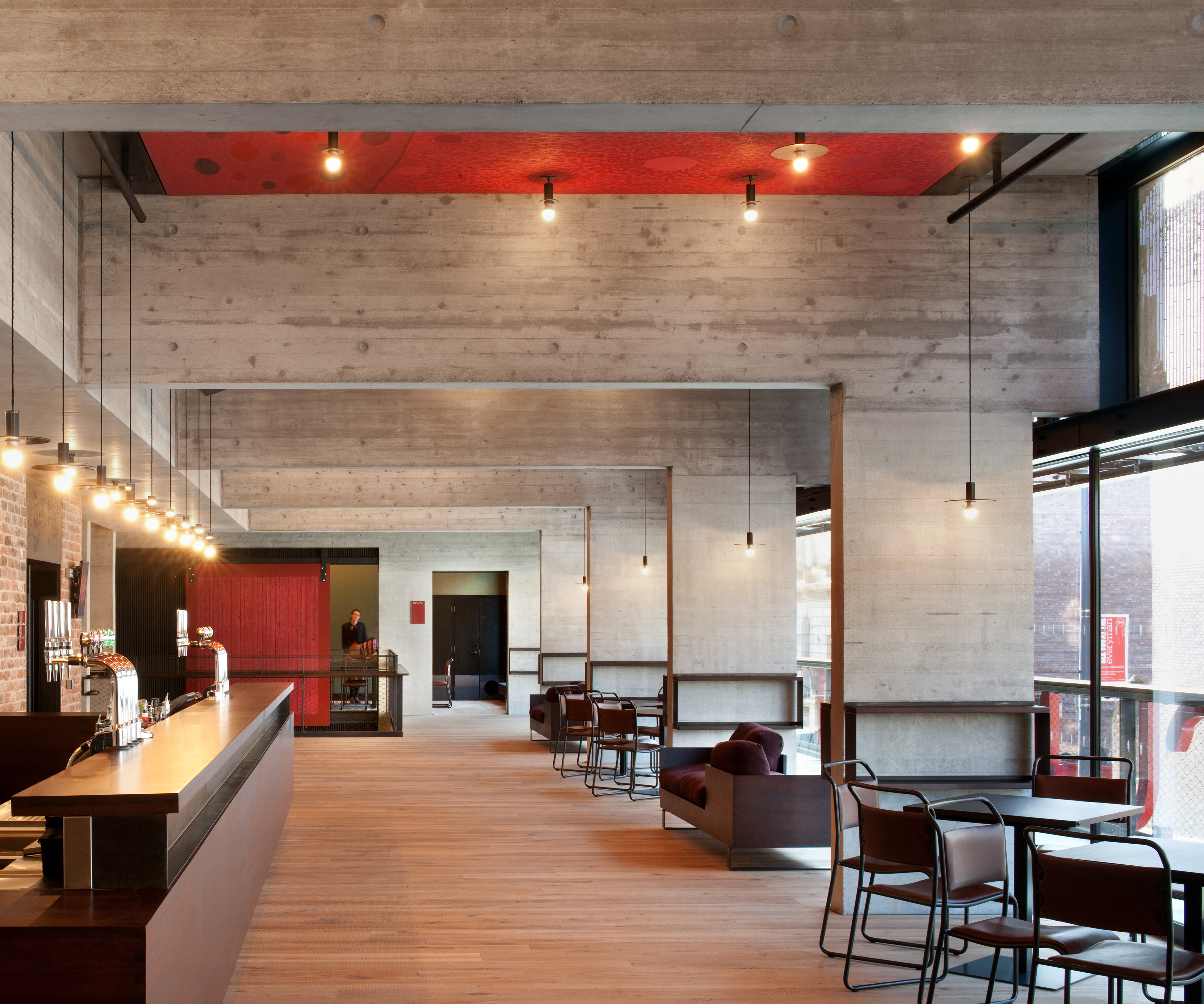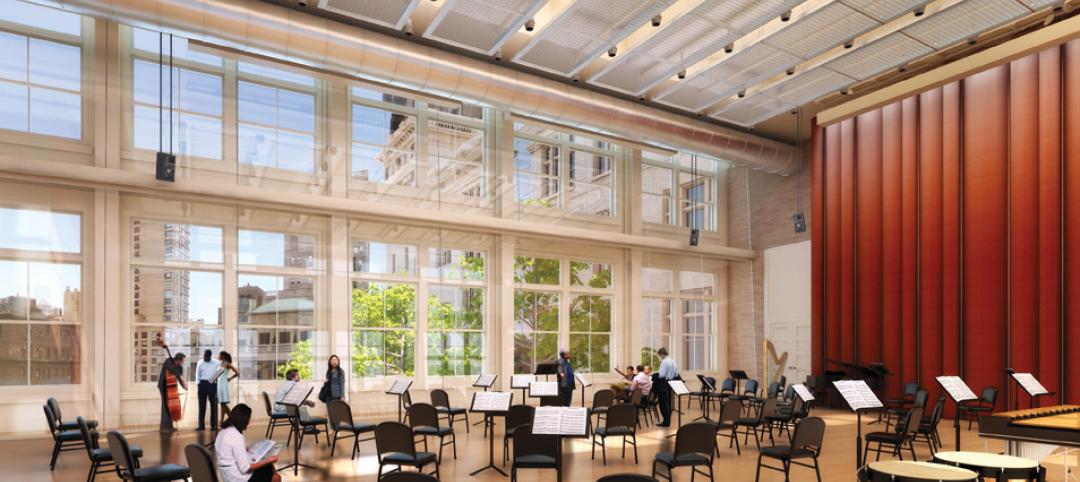The new Everyman Theatre in Liverpool by Haworth Tompkins has won the coveted RIBA Stirling Prize 2014 for the best building of the year. Now in its 19th year, the RIBA Stirling Prize is the UK’s most prestigious architecture prize.
The presentation of the RIBA Stirling Prize trophy to Haworth Tompkins took place at a special ceremony on October 16 at the Royal Institute of British Architects in London.
The old Everyman Theatre in Liverpool opened in 1964 in the shell of a 19th-century chapel on one of Liverpool’s main streets. Although a much-loved institution, the building itself was in a state of disrepair.
The decision to pull the theater down and replace it with a new one has been a nine-year project for the architects Haworth Tompkins. They have expertly met a difficult challenge: that of creating an entirely new and sustainable building, while retaining and revitalizing the best-loved features of its predecessor.
The architects were tasked with ensuring that the soul of the old Everyman, one of informality and community ownership—the "theatre of the people"—was carried into the new building. The result is a new building with a striking exterior and elegant interior, all with exceptional attention to detail and sustainability credentials.
RIBA President Stephen Hodder said:
“The success of this exceptional new building lies in the architect’s close involvement with the local community throughout the project. Haworth Tompkins have struck the perfect balance between continuity and change to win the hearts and minds of the people of Liverpool with the vibrant new Everyman. Complementing beautifully with the surrounding listed buildings, it is a ground-breaking example of how to build a daring bold and highly sustainable large public building in a historic city centre. The building exceeds expectations and I am delighted to present Haworth Tompkins with the 2014 RIBA Stirling Prize.”
The judges' citation for the RIBA Stirling Prize winner:
“The new Everyman in Liverpool is truly for every man, woman, and child. It cleverly resolves so many of the issues architects face every day. Its context—the handsome street that links the two cathedrals—is brilliantly complemented by the building’s scale, transparency, materials, and quirky sense of humour, notably where the solar shading is transformed into a parade of Liverpudlians. The ambience of the theatre is hugely welcoming with three elegant and accessible public foyers for bars, lounges and café/bistro. Clever use of materials with interlocking spaces and brilliant lighting make this an instantly enjoyable new public space for the city."
"It is exceptionally sustainable; not only did the construction re-use 90% of the material from the old theater, but all spaces are naturally ventilated including the auditorium with its 440 seats. Clever, out of sight concrete labyrinths supply and expel air while maintaining total acoustic isolation. It is one of the first naturally ventilated auditoria in the UK. The generosity of its public spaces, which, on a tight site, are unexpected and delightful, are used throughout the day and night. As Howarth Tompkins’ first completely new theatre, it is a culmination of their many explorations into the theatre of the 21st century. It is ground-breaking as a truly public building, which was at the heart of the client’s philosophy and ethos. In summary, an extraordinary contribution to both theatre and the city, achieved through clever team working—client, architect, consultants, and contractor—where the new truly celebrates the past.”
This is the first time Haworth Tompkins has won the RIBA Stirling Prize. The firm was previously shortlisted in 2007 for London’s Young Vic theatre. The Everyman is its first new-build theater, among a portfolio of over a dozen theaters from the Royal Court in 2000 to the recent temporary "Shed" outside the National Theatre. Its other projects include a secondary school in Birmingham and Coin Street Community Centre in London. The practice is currently working on a regeneration project in Canning Town and a housing development in Stratford, East London.
The Everyman Theatre was chosen by the judges from the following outstanding shortlisted entries:
-
Library of Birmingham by Mecanoo
-
London Aquatics Centre by Zaha Hadid Architects
-
London School of Economics - Saw Swee Hock Student Centre by O’Donnell + Tuomey Architects
-
Manchester School of Art by Feilden Clegg Bradley Studios
-
The Shard by Renzo Piano Building Workshop
The judges for the 2014 RIBA Stirling Prize were: Spencer de Grey (Chair) - architect, Foster and Partners; MJ Long - architect, Long and Kentish Architects; Cindy Walters - architect, Walters and Cohen; Stephen Kieran – architect, Kieran Timberlake; and Sir Timothy Sainsbury architectural patron and client.
The winners of three other annual RIBA awards were also announced:
-
Stormy Castle, Gower Peninsula, Wales, by Loyn & Co., won the 2014 RIBA Manser Medal for the best new private home
-
House No 7, Isle of Tiree, Scotland, by Denizen Works won the RIBA’s 2014 Stephen Lawrence Prize for best project with a construction budget of less than £1 million
-
Manchester Metropolitan University won the 2014 RIBA Client of the Year. The award recognizes the role good clients play in the delivery of fine architecture.
Related Stories
| May 18, 2011
Carnegie Hall vaults into the 21st century with a $200 million renovation
Historic Carnegie Hall in New York City is in the midst of a major $200 million renovation that will bring the building up to contemporary standards, increase educational and backstage space, and target LEED Silver.
| May 17, 2011
Redesigning, redefining the grocery shopping experience
The traditional 40,000- to 60,000-sf grocery store is disappearing and much of the change is happening in the city. Urban infill sites and mixed-use projects offer grocers a rare opportunity to repackage themselves into smaller, more efficient, and more convenient retail outlets. And the AEC community will have a hand in developing how these facilities will look and operate.
| May 17, 2011
Architecture billings index fell in April, hurt by tight financing for projects
The architecture billings index, a leading indicator of U.S. construction activity, fell in April, hurt by tight financing for projects. The architecture billings index fell 2.9 points last month to 47.6, a level that indicates declining demand for architecture services, according to the American Institute of Architects.
| May 17, 2011
Sustainability tops the syllabus at net-zero energy school in Texas
Texas-based firm Corgan designed the 152,200-sf Lady Bird Johnson Middle School in Irving, Texas, with the goal of creating the largest net-zero educational facility in the nation, and the first in the state. The facility is expected to use 50% less energy than a standard school.
| May 17, 2011
Gilbane partners with Steel Orca on ultra-green data center
Gilbane, along with Crabtree, Rohrbaugh & Associates, has been selected to partner with Steel Orca to design and build a 300,000-sf data center in Bucks County, Pa., that will be powered entirely through renewable energy sources--gas, solar, fuel cells, wind and geo-thermal. Completion is scheduled for 2013.
| May 17, 2011
Should Washington, D.C., allow taller buildings?
Suggestions are being made that Washington revise its restrictions on building heights. Architect Roger Lewis, who raised the topic in the Washington Post a few weeks ago, argues for a modest relaxation of the height limits, and thinks that concerns about ruining the city’s aesthetics are unfounded.
| May 17, 2011
The New Orleans master plan
At an afternoon panel during last week's AIA National Conference in New Orleans, Goody Clancy Principal David Dixon and Manning Principal W. Raymond Manning shared their experiences creating the New Orleans Master Plan, a document that sets a new course for the city, from land use and transportation planning to environmental protection.
| May 17, 2011
Do these buildings look like buffalo to you?
It’s hard to contemplate winter now that we’re mid-spring, but when the seasons change, ice skaters in Winnipeg will be able to keep warm in plywood shelters designed by Patkau Architects. The designers created temporary shelters inspired by animal behavior—specifically, buffalo bracing against the wind. Check them out.
| May 16, 2011
USGBC and AIA unveil report for greening K-12 schools
The U.S. Green Building Council and the American Institute of Architects unveiled "Local Leaders in Sustainability: A Special Report from Sundance," which outlines a five-point national action plan that mayors and local leaders can use as a framework to develop and implement green schools initiatives.


















